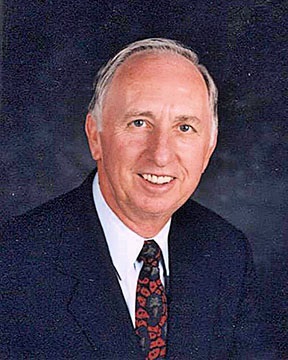SPEAKER AT THE MUSEUM JUNE17, 2017
 Vietnam Speaker, Jim Van Straten - June 17 at 1:00
Vietnam Speaker, Jim Van Straten - June 17 at 1:00
Colonel Van Straten was born in Appleton, Wisconsin. He is the oldest of seven children born to Glen and Caroline Van Straten of Black Creek, WI. After graduating from Seymour High School in 1951 he attended and graduated from St Norbert College with a Bachelor of Science degree in biology in 1955. He was also designated a Distinguished Military Graduate of the ROTC program and offered a commission in the Regular Army. He entered the Army Medical Department in 1955 and served over 30 years, achieving the grade of colonel in the Medical Service Corps. Under the sponsorship of the U.S. Army, he earned a Masters Degree in Education from Incarnate Word College and a Ph.D. in Educational Administration from The University of Texas at Austin.
Vietnam Experience
Colonel Van Straten’s military career included positions of significant responsibility in allied health education, medical operations and training, personnel management, medical policy formation and health care administration. During the period from July 1966 to July 1967 he served as the Senior Medical Advisor to the South Vietnamese Army in the First Corps Tactical Zone of South Vietnam. In this capacity, he advised the Vietnamese Corps Surgeon on all administrative and logistical aspects of providing medical support to the South Vietnamese Army. He also served in a liaison capacity, coordinating actions between South Vietnamese medical units and American medical units operating in the First Corps Tactical Zone.
The Book
A Different Face of War is a riveting account of one American officer in the Medical Service Corps during the early years of the Vietnam War. Assigned as the senior medical advisor to the Army of the Republic of Vietnam in I Corps, an area close to the DMZ, James G. Van Straten traveled extensively and interacted with military officers and non-commissioned officers, peasant-class farmers, Buddhist monks, shopkeepers, scribes, physicians, nurses, the mentally ill, and even political operatives.
He sent his wife daily letters from July 1966 through June 1967, describing in impressive detail his experiences, and those letters became the primary source for his memoir. The author describes with great clarity and poignancy the anguish among the survivors when an American cargo plane in bad weather lands short of the Da Nang Air Base runway on Christmas Eve and crashes into a Vietnamese coastal village, killing more than 100 people and destroying their village; the heart-wrenching pleadings of a teenage girl that her shrapnel-ravaged leg not be amputated; and the anger of an American helicopter pilot who made repeated trips into a hot landing zone to evacuate the wounded, only to have the Vietnamese insist that the dead be given a higher priority.
Under the supervision of Maj. Pham Viet Tu, the head doctor of Da Nang’s Duy Tan hospital, Van Straten constantly traveled across I Corps. The United States provided much of the material medical support, and Van Straten performed many minor miracles to ensure that its delivery was timely and in adequate quantity for Vietnamese soldiers and civilians. He faced the endless task of suppressing rampant outbreaks of tuberculosis, bubonic plague, malaria, cholera, rubella (measles), lice, dysentery, and diarrhea.
He also supervised movements of the wounded. Sometimes hospitals had to admit double the number of patients they could handle. During his time in Vietnam, I Corps suffered more casualties than the rest of the country combined. He helped to sort the wounded from the dead and the Americans from the Vietnamese.
In his ten-year Army career before the war, Van Straten had never been assigned to a hospital of any type. “The number of civilian casualties produced by the war was appallingly high,” he writes. “As a younger man, I had so wanted to become a physician, but exposure to trauma of that magnitude convinced me that I was not equipped to handle it. Sometimes I got mildly depressed. I was encountering heart-rending trauma almost on a daily basis.”
Editors comments: The book is a great read. It provides an insight into the cultural conflict between the Americans and Vietnamese. Col. Van Straten describes in vivid detail the magnitude of the challenge facing the United States. The book is a must read for anyone who lived during this era and seeks a greater understanding. Books will be available to purchase at the presentation. Members of the historical society board are thrilled that Col. Van Straten has volunteered to share his story with us.